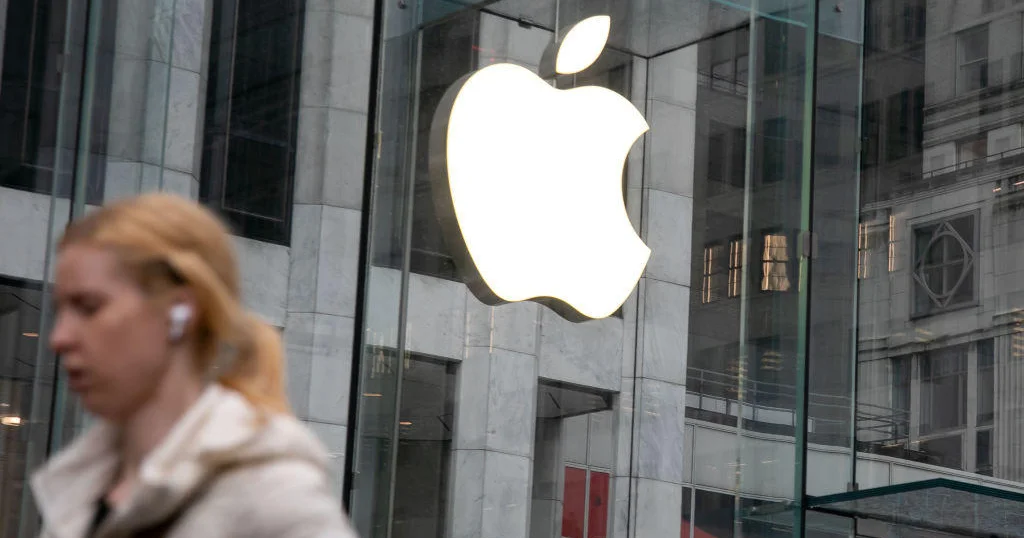In a recent correspondence with European officials, Apple has expressed significant concerns regarding the impact of new European Union regulations on its App Store, claiming these changes compromise user safety. Highlighting the risks that alterations have introduced, Apple Vice President Kyle Andeer argued that the EU’s enforcement agenda undermines the security and privacy protections of its platforms. This letter marks yet another chapter in the ongoing tensions between major American tech companies and European regulators, reflecting broader implications for international trade and competition.
| Article Subheadings |
|---|
| 1) Apple’s Concerns Over EU Regulations |
| 2) The Digital Services Act and Digital Markets Act |
| 3) Financial Penalties and Appeals |
| 4) Broader Implications for American Tech Firms |
| 5) Conclusion and Future Outlook |
Apple’s Concerns Over EU Regulations
In a pointed letter to the European Commission, Apple raised alarms about recent EU regulations that require the tech giant to accommodate smaller competitors in its App Store. The company contends that these changes lead to heightened risks for users, stating, “risks to users on our devices will inevitably increase,” as articulated by Kyle Andeer. This communication signifies a critical turning point in Apple’s ongoing relationship with European regulators, who are implementing strict measures aimed at fostering competition and protecting consumers. The tone of the letter underscores Apple’s apprehension that regulatory actions may infringe upon their ability to manage security protocols effectively.
The Digital Services Act and Digital Markets Act
The European Union recently enacted two landmark laws: the Digital Services Act (DSA) and the Digital Markets Act (DMA). The DSA mandates that online platforms adhere to stringent standards to combat illegal content and safeguard minors from harmful advertising. Conversely, the DMA focuses on promoting fair competition by imposing regulations on major tech companies, ensuring that they cannot engage in anti-competitive practices. Compliance with these laws is critical, as violations could result in substantial fines and further regulatory scrutiny. Apple’s criticisms reflect a growing concern among tech giants regarding the implications of these legislative changes for their business operations and user safety.
Financial Penalties and Appeals
In April, Apple faced a hefty fine of 500 million euros for purportedly breaching the DMA by restricting app developers from directing users to alternatives outside of the App Store. The company has since lodged an appeal against this penalty, arguing that the EU’s enforcement activities possess a reckless nature. Apple has intensified its rhetoric, asserting that the regulatory environment in the EU is giving rise to unforeseen risks, such as exposure to financial scams and other online threats. This legal battle underscores the tension between ensuring consumer protection and maintaining competitive integrity in the digital marketplace.
Broader Implications for American Tech Firms
The quarrel between Apple and European regulators is not isolated; it forms part of a larger narrative involving several major American tech corporations, such as Meta and Google. These companies have increasingly come under the microscope for allegedly stifling competition. Historically, U.S. officials have responded to perceived European overreach, with past tensions manifesting in trade negotiations, including threats of increased tariffs. In recent months, U.S. trade advisers have decried what they describe as “lawfare” aimed at targeting America’s top tech firms, further complicating an already fraught transatlantic relationship.
Conclusion and Future Outlook
As Apple continues to navigate its legal challenges in Europe, the broader implications for the tech industry remain pertinent. The interplay between regulation and innovation will be closely monitored, particularly as American companies reassess their strategies in global markets. The letter to EU officials is not just a corporate directive; it is an indication of an escalating battle over digital governance whose outcomes could shape the future landscape of technology regulation.
| No. | Key Points |
|---|---|
| 1 | Apple is concerned that EU regulations compromise user safety. |
| 2 | The Digital Services Act and Digital Markets Act are central to the EU’s regulatory framework. |
| 3 | Apple is appealing a substantial fine imposed for non-compliance with the DMA. |
| 4 | The concerns extend beyond Apple, affecting various American tech giants. |
| 5 | The regulatory battle could redefine the future of tech governance. |
Summary
The ongoing discourse between Apple and European regulators is emblematic of larger tensions in the global tech landscape. With the implementation of significant regulatory measures like the DSA and DMA, the balance between fostering competition and ensuring user safety is more precarious than ever. As the outcome of Apple’s appeals and further regulatory scrutiny unfolds, the repercussions will likely resonate throughout the international tech arena.
Frequently Asked Questions
Question: What are the Digital Services Act and Digital Markets Act?
The Digital Services Act mandates that online platforms follow strict guidelines to tackle illegal content and protect consumers, while the Digital Markets Act aims to promote fair competition among major tech companies.
Question: Why is Apple appealing the fine imposed by the EU?
Apple is appealing the fine because it argues that the EU’s enforcement of regulations is reckless and exposes users to higher risks, compromising privacy and security.
Question: How do these regulatory changes affect American tech firms?
The regulatory landscape in Europe poses challenges for American tech firms, compelling them to modify operations, face significant fines, and navigate complex compliance requirements, thereby affecting their global competitiveness.
